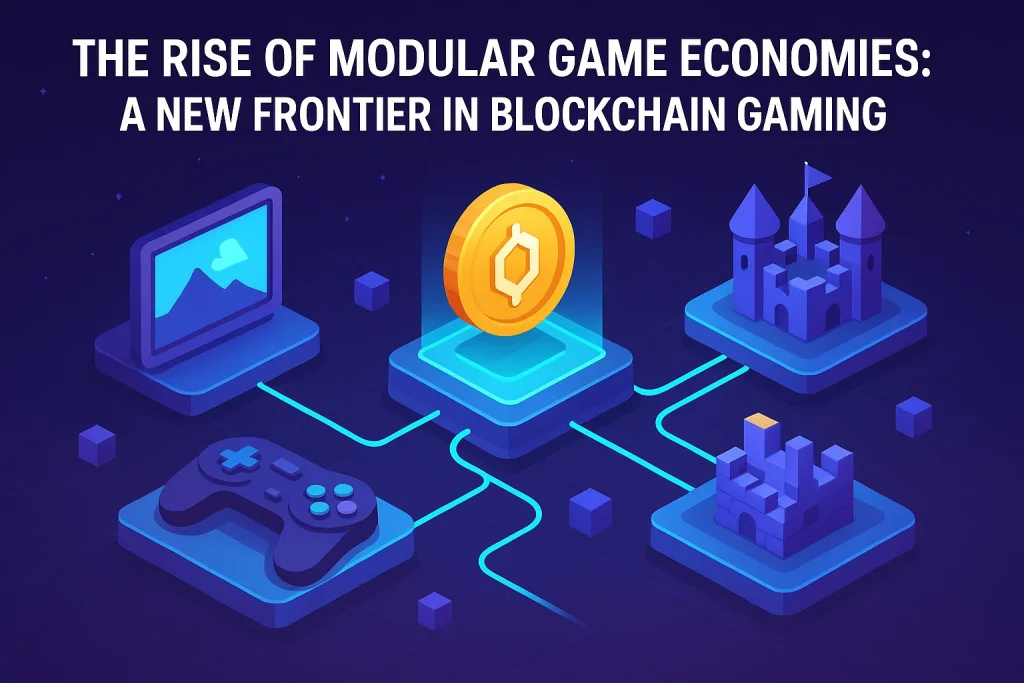From Play-to-Earn to Play-and-Own
The initial hype of Play-to-Earn games has cooled off, and that’s a good thing. Today’s blockchain games are maturing into Play-and-Own ecosystems—focusing more on asset interoperability, community-driven economies, and long-term fun over short-term financial speculation. This transition is not a fad; it’s a paradigm shift.
Modular Ecosystems Will Win
We’re entering an era of modular game economies—where in-game items, characters, or currencies are not tied to a single title, but instead become part of an entire ecosystem. Studios are beginning to release multiple titles that share assets, lore, and players. Think Nintendo-style universes, but owned by the players.
Composability Is the Key
Games built on composable protocols (like Ethereum’s ERC-6551 or Layer 2 solutions) are enabling features that were previously unthinkable: upgrading weapons through DeFi tools, renting avatars to other players, or even migrating assets from a racing game to a sci-fi RPG. These are not buzzwords—they’re working features in testnets and early-access titles today.
Player-Governed Game Worlds
DAOs in gaming are becoming more than just “token holders voting on stuff.” Imagine entire in-game factions being governed by player communities who control lore expansions, territory disputes, or economic parameters. We’re seeing games become living, self-evolving virtual societies.
The Global Impact
From Southeast Asia to Latin America, blockchain games are redefining digital employment and ownership. In countries with unstable currencies, blockchain-based gaming is becoming both a source of income and a form of economic empowerment. But more importantly, it’s unlocking global creativity and participation in world-building.
Conclusion
The next big blockchain game won’t just be a game—it’ll be a platform, a social economy, and a cultural movement. Developers should stop asking “How do we make Web3 fun?” and start asking, “How do we make fun inherently Web3?”
Contact Golden Sea Studios:
- Website: goldenseastudios.com
- Email: info@goldenseastudios.com
- Social Media: @goldenseastudios (Twitter, Instagram, Facebook)
- Telegram: @goldenseastudio
We are available online to assist you with any inquiries or collaborations. Reach out to us through these channels and let’s connect!


Recent posts
We’ve got a lot of awards for our products and services that became popular in the world.
Blog
Intergalactic: The Heretic Prophet – A Sci‑Fi Bounty Hunter Saga in the Making
Blog
Neverness to Everness – A Multiverse Action RPG Teasing “Mind‑Shift” Mechanics
Intergalactic: The Heretic Prophet – A Sci‑Fi Bounty Hunter Saga in the Making
Neverness to Everness – A Multiverse Action RPG Teasing “Mind‑Shift” Mechanics
Blood Message – NetEase & 24 Entertainment’s First AAA Solo Epic
League of Masters: Auto Chess – A Fresh Spin on Strategic Auto-Battling
Solo Leveling: ARISE – Step Into the Shadow Monarch’s World
Wuthering Waves 2.5 “Unfading Melody of Life” Launches July 24
Zenless Zone Zero – miHoYo’s Anime-Style Action RPG That’s Taking Fans by Storm
Dune: Awakening – A Next Gen Survival MMO Set to Shake the Sands